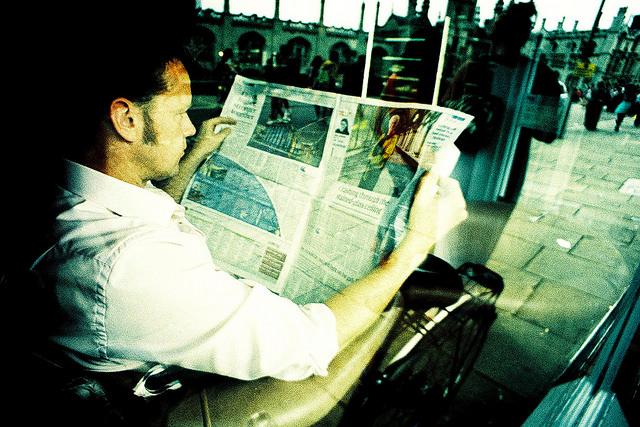
On 15 December last year The Daily Telegraph produced a special lunchtime edition that featured the front-page headline: ‘Death Cult CBD Attack: IS takes 13 hostages in city cafe siege’.
The edition generated complaints to the Australian Press Council. The complaints centered on the claim that Monis was a terrorist associated with Islamic State and that these claims may have caused distress to readers, particularly those who knew the hostages, without sufficient public interest.
The Press Council recently decided not to pursue the matter. It acknowledged the report relied on information from ‘multiple, senior sources’ that were ‘confirmed by police information from subsequent inquiries.’ The Council took into account that the article was ‘reporting on an event in which circumstances were uncertain and fast moving.’
This Press Council finding is in line with the official Commonwealth and NSW Review into the Sydney Martin Place siege that praised the media for a job well done during the rolling coverage of the 16-hour siege. It found the media’s live coverage of this major news story was ‘measured and responsible’.
But the Review also pointed out that while ‘cooperation between the media and the police during the siege was very good, it is important that this not be taken for granted’.
That’s a sensible caution. It’d be hard to know how press coverage of a mass casualty attack, or a serious bioterrorism incident here would be handled; there’d be reporters all over the place, many of whom wouldn’t be experienced in national security affairs.
A report released last month by ASPI, Gen Y Jihadists: preventing radicalisation in Australia, recommended more discussion between the government and the media on reporting terrorism.
I’d suggest a national security and media forum would enhance confidence between our national security agencies and the media by raising awareness of each other’s responsibilities and identifying ways to improve communication.
Possible subject areas might include media coverage of terrorist incidents, protective security arrangements for journalists conducting local terror reporting, a potential role for the media in counter-terrorism exercises, the protection of operational details of police counter-terror operations, and the media’s investigations of social media accounts being used by extremists.
Such a forum might sponsor training seminars designed to increase technical skills and consider new anti-terrorism legislation that impacts on media activity. It might consider how journalism schools best prepare students with the practical training and knowledge to cover terrorism acts in an ethical and informed manner.
I’m not suggesting, however, that there’s a need for a specific media code covering terrorism. Current reporting guidelines and existing codes should be drawn upon: restrictions on professional journalists through a terrorism reporting code might just encourage citizen journalists to fill the gap.
Similarly there’d be no need to consider establishing any formal accreditation system for terrorism reporting, as operates for special events where there’s security reasons for limiting access to journalists.
Wider accreditation for terrorism reporting isn’t practical due to staff turnover and the fact that these days it’s not just specialist reporters that cover matters related to home-grown terrorism.
Who’d be best placed to convene a national security media forum? Given that Attorney-General’s Department has responsibility for the National Security Public Information Guidelines then they might be a possibility. Other contenders might include the Department of Prime Minister & Cabinet, ASIO and Australian Federal Police.
To start the ball rolling, ASPI’s Executive Director, Peter Jennings, recently pointed out that if the government wanted to open a dialogue with media representatives around terrorism reporting then ASPI, because of its ‘engagement with government agencies and with the media’, would be prepared to assist.